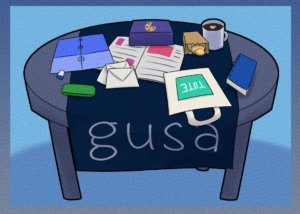The Foundation for Individual Rights in Education, which rates colleges and universities on their tolerance of free speech, ranked Georgetown as a “red light” school, signaling what it perceives to be a dangerously high suppression of provocative speech.
“The Georgetown administration has a checkered history of selectively protecting student speech,” FIRE Chief Executive Officer Thor L. Halvorssen said.
The FIRE free speech alert system designates schools as green if their speech code nominally protects free speech, yellow for those with a code that could easily be interpreted to restrict free speech and red for schools whose code dangerously suppresses free speech.
According to Halvorssen, Georgetown is red because its policy “offers extraordinary and dangerous latitude to administrators.”
The University said it disagrees with FIRE’s interpretation of Georgetown’s free speech policy and believes that it protects and respects the free exchange of ideas on campus.
“Georgetown’s speech and expression policy holds true to our mission as a university, as a place where ideas and information are freely exchanged,” Vice President for Student Affairs Juan Gonzalez said.
Gonzalez said that the University’s Speech and Expression Committee creates a forum that allows for perspectives from all members of the community.
FIRE offerred a different interpretation of Georgetown’s free speech code.
“Georgetown promises academic freedom and religious freedom and, once the tuition check is cashed, provides its students with a speech code. We have names for that: fraud, false advertising and breach of contract,” FIRE President Professor Alan Charles Kors said.
FIRE said, however, that a university’s Catholic or other religious identity gives it license to regulate speech on campus, as long as the students and faculty voluntarily choose such a policy. Halvorssen said that Georgetown’s Speech Code, which the University refers to as a Speech and Expression Policy, constitutes false advertising.
Halvorssen referred specifically to what he described as the “inconceivable double standard” in the University’s treatment of student organizations, stating that conservative Catholic groups are unneccesarily censored. Halvorssen cited the recent theft of The Georgetown Academy and the University’s failure to take action as “thefts that have gone unpunished.”
Students on The Academy shared concern over free speech on campus.
“I do believe that often Catholic conservative voices are not heard and respected on campus,” Academy Editor-in-Chief Ross Grimes (CAS ‘04) said.
According to Grimes, censorship of The Academy was more of a worry in the past than it is now, and the current administration’s reaction to the publication is much better. He said, however, that he is still worried about free speech on campus.
Other campus organizations said that they feel their right to freedom of speech is often hindered by the University’s Speech Code.
“Georgetown is only for free speech as long as it does not conflict with fundamental Catholic tenements, which is no free speech at all,” Board Member of Hyas for Choice Kristina Gupta (CAS ‘05) said.
Gupta said that the University’s refusal to fund Hyas for Choice restricts their right to free speech. Denied funding limits their ability to put out fliers, host forums and distribute newsletters, all limiting their free speech, she said.
Gupta agreed with FIRE’s accusation that the University’s speech and expression policy is false advertising.
“Georgetown actively courts people with different beliefs, so restricting the expression of those beliefs later on is hypocritical,” she said.
The University would not comment on specific cases involving student organizations.
Despite Grimes’ belief that the University has become more receptive to student free speech, FIRE said that the framework of Georgetown’s speech code still gives the administration power in restricting free speech.
He referred specifically to the statement that students and faculty may be prosecuted when inappropriate or offensive expression takes place.
“Unless and until Georgetown amends the vague and overbroad aspects of its policy, it will remain classified as a school that has a policy that restricts freedom of speech,” Halvorssen said.





